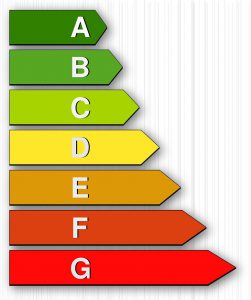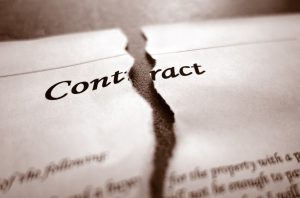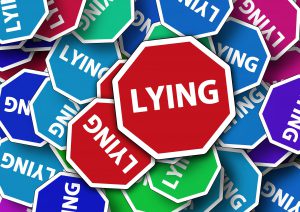When reading your commercial insurance policy, you might come across the term “waiver of subrogation.” Waiving subrogation rights means that your insurance company will be prohibited from “stepping into your shoes” and suing a negligent third party. Many companies will require a waiver of subrogation from a business that performs work on their behalf. Since this is a common demand from many clients, it is important to understand exactly what a waiver of subrogation is and how it affects your business insurance coverage, so that you can discuss with your insurance company whether you should waive this right.
What is Subrogation?

Subrogation literally means one party standing in the place of another party. In insurance terms, this means that an insurance company has the right to sue a third-party if they were responsible for a loss that the insurer has paid out on. For example, if you are injured or have experienced any damages from an accident caused by someone else, then you have the right to sue the person responsible in order to get compensated for your loss. However, if you file a claim and your insurance company pays you for the loss, then your rights to sue the person are transferred to your insurance company. This means that the insurance company can sue the person/s responsible for the injury or damages in order to recover the payment they gave to you.
To illustrate this principle, let’s say you are working with a client to service your business’ equipment. If something goes wrong with the equipment and injures a worker, you will file a workers’ comp claim and your insurer will pay the claim. Now your worker will have the opportunity to sue the client for the negligence that caused the injury. During subrogation, the insurance company will step in and represent the worker (or you) and sue the client in order to recoup the money they paid for the workers’ comp claim.
When you sign a waiver of subrogation, you give up the right to seek compensation from the responsible party. If your insurance company pays out on a claim you file, then you and your insurance company cannot recover the money from the third-party who was at fault. You might come across business partners or clients who want your business to waive your right to subrogation so that they will not be held liable for damages or loss. Signing a waiver of subrogation will eliminate any potential business conflicts because you will be taking full responsibility for any damages.
Types of Waivers of Subrogation

Waivers of subrogation are generally used in general liability policies, worker’s compensation policies, and some commercial property policies. There 2 different versions of waivers that insurance carriers use in association with liability policies:
- Scheduled Waiver of Subrogation- Every time you are requested to sign a waiver, your insurance carrier must pre-approve and endorse the policy.
- Blanket Waiver of Subrogation- Unlike a scheduled waiver of subrogation, a blanket waiver provides automatic or “blanket” coverage to any person or organization that the wording in the waiver applies to.
Should You Consider A Waiver of Subrogation?
Signing a waiver of subrogation is a large risk for your business. It means that you will be giving up your right to recover losses from your client in the event that they are responsible for a claim. In addition, if a client requests a waiver and demands that you add it to your liability policy, your insurance company will most likely charge you more for your premiums. This is because they are taking on more of a risk to insure you, and will not be able to recover money paid for any claims that were the fault of a third party.
Need Help?
In some cases, you will have no choice but to sign a waiver of subrogation. If you are considering a waiver of subrogation or a client is requiring one from you, then understand that it can end up costing you more in insurance premiums. However, you can still save money on commercial insurance by using an EZ.Insure agent. We will provide you with a highly-trained agent who has access to the top-rated insurers in the nation. They will be able to assess your risks and needs, and compare available commercial insurance plans in your area within minutes. To get free instant quotes, simply enter your zip code in the bar above, or to speak to an agent, call 888-615-4893.















